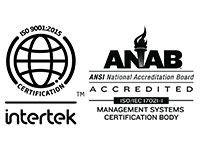Car washer drowns in city bureaucracy
December 22nd, 2008
By Lee Roop, Huntsville Times Staff Writer (lee.roop@htimes.com)
Reams of rules - and competitors - tail entrepreneur
Why is City Hall making it hard for cancer survivor Bruce Dean to make a living, stay off welfare and maintain some personal dignity?
Because that's the way the federal government wants it, apparently.
Dean, 45-year-old owner of Dean's Mobile Car Wash, has gotten crossways of a long and popular national effort to clean up America's inland waters.
He's now fighting a second city citation for "discharging wastewater to city's storm sewer system," to quote the ticket issued to him Oct. 15.
An earlier ticket cost him $200 in court costs even after the fine was waived as a first offense, Dean said Tuesday. He expects this one to cost more.
Even so, Dean says he loses even more by following the law. It requires him to spread a tarp under every car he washes, collect the wash- and rinse water into a tank and haul that tank to an approved dumping site. All of those time-consuming actions limit how many cars he can wash.
"If they make me use this mat," Dean said, "I'm not going to be in business at all."
"This is federal law," replies Danny Shea, director of the city's Natural Resources Division. "The city is required to (do) it."
To understand why Bruce Dean can't rinse his car-wash water down the storm drain but you can at home, and why the cheerleaders can at their Arby's car wash Saturday, you need to understand federal law. Shea will be your guide.
Federal clean water laws require states to require cities to require businesses to have permits for the proper disposal of pollutants. "The definition of a pollutant under federal law includes almost everything," Shea conceded Monday. "Even heat." Hot water from a power plant, for example, can kill wildlife. So, too, can the obvious pollutants associated with washing cars - soap, oil, window cleaner - even if those products are "biodegradable."
Biodegradable just means bacteria can break it down, Shea said. But a blanket of suds can suck a lot of oxygen out of a creek before breaking down.
For years, enforcing the law meant going after plating businesses, industrial plants and other major players, Shea said.
"When you've gotten the low-hanging fruit and still have pervasive urban pollution problems ...," Shea said, leaving unsaid that it's down to smaller sources now.
But not all of them. Federal lawmakers are politicians, above all, so they wrote into the law an exemption for Joe Homeowner when he's washing the family car.
Runoff from watering grass is exempt, too, even if you're watering, say, a giant business' front lawn an hour after it's been chemically treated.
City officials aren't fools, either, so Shea has, in his word, "broadly" interpreted the private car wash exemption to allow those one-shot washes at the corner gas station. No use fighting high school bands and pep squads.
"But if you're a business ...," Shea sighed, noting there are some 50 of these mobile car washes in Huntsville now. In Shea's classification system, they're filed under "headaches."
Shea understands their appeal. A guy can get into mobile car-washing with little up-front capital. A van, some business cards, hoses, soap and a business license and you're good to go.
It's a good thing, right?
"I'm not out robbing people or selling drugs," Dean said. "I'm a man trying to make an honest living."
But businesses require licenses, and licenses require following the pollution law. The city has promised the state it will do the best it can to see the law is followed.
All this might be quietly resolved in the "don't ask, don't tell" manner - and Shea admits his two inspectors aren't out trolling for violators - but remember, this is "business."
Competitors turn each other in. Little guys turn in fixed car washes if they think the law is being broken there, Shea said. Little guys turn each other in, too.
As a side note, if Dean thinks the rules are tough for him, he should see what's required for fixed car-wash operations, even the small ones behind gas stations. We're talking collection tanks, oil separation tanks, sediment beds and detailed disposal rules.
"Somebody complained," Shea said.
That's the bottom line. Somebody complained, Dean was checked out, and he was cited.
Dean's not buying it. "I think he followed me," he said of the inspector.
So why doesn't Dean just use the tarp? He's got one. He's one of only a handful of mobile car-washing businesses that does have one, in Shea's estimate.
Here's the problem, Dean said. He shows up at a real estate office or research park business where eight cars need washing. At $20 a car ($25 for SUVs and big trucks), that's a potential $160 payday. If he can get them washed.
Dean says if he has to move the tarp, drain the tarp, mess with the tarp, he runs the risk of taking so long he loses two, three or more of his cars.
"Realtors, they're in and out," he said Tuesday. "Engineers, too."
Dean can't understand why 5,000 people can wash their cars and drain the water into the storm sewer on a summer Saturday and he can't do a few dozen a week.
Shea says the city has done everything it can, including waive at least one collection rule for the mobile guys. But the bottom line is, this is the law.
"Can you operate your business lawfully?" Shea asked, referring to operators such as Dean. "Yes, you can."

